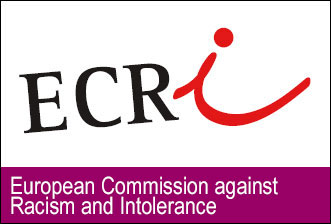The national Specialised Bodies’ role in advising legislative and executive authorities and other stakeholders
Seminar of the Council of Europe’s Anti-Racism Commission (ECRI) for national independent authorities combating racism and intolerance
Date: 26-27 May 2016
Venue: Strasbourg – Council of Europe, Agora.
Organised by: the European Commission against Racism and Intolerance (ECRI) of the Council of Europe.
Participants: representatives of member States’ independent authorities (specialised bodies) expressly entrusted with the fight against racism, xenophobia, antisemitism, intolerance and discrimination on grounds such as ethnic origin, colour, citizenship, religion and language (racial discrimination); members of ECRI; representatives of national Ombudspersons and national human rights institutions; as well as members of national parliaments, representatives of local authorities, European and international intergovernmental organisations, NGOs and networks.
Topic: National Specialised Bodies have the potential to achieve policy change. This potential is realised in providing advice to legislative and executive authorities, as well as to business and trade unions. National Specialised Bodies have also the potential to enhance the wider institutional infrastructure promoting equality and combating discrimination. This potential is realised through engaging with and advising NGOs working on issues of non-discrimination and equality. However, this work of providing advice to different stakeholders faces barriers, such as lack of resources or limited stakeholder interest, incomplete mandate of the national specialised body or pressures to allocate limited resources to responding to individual cases.
Main aim: the seminar aimed to identify barriers to the national Specialised Bodies’ advisory role, to establish how to address them and to find the support needed for this work, as well as to establish how these bodies can maximise the impact of this work.
Specific objectives: the seminar address edthe following questions:
During the first day this event examined the functions of national Specialised Bodies in:
1. advising legislative and executive authorities in seeking policy and legislative change;
2. advising businesses and trade unions in seeking practice change;
3. advising NGOs in stimulating and supporting a wider infrastructure to promote equality and non-discrimination.
With a view to provide an opportunity for national Specialised Bodies to:
- share and reflect on their work of providing advice to legislative and executive authorities and to other stakeholders, including the private sector;
- learn from the experience of others to develop further and expand this advisory function;
- identify the support needed, to better specify and improve further their advisory work and enhance its impact.
Documents



